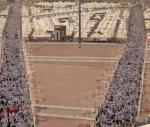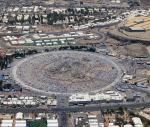You are here
Stopping ‘cultural cleansing’
Apr 10,2016 - Last updated at Apr 10,2016
The United Nations’ cultural agency UNESCO, in September last year, said archaeological sites in Syria were looted on “industrial scale” by Daesh, which used the proceeds of its plunder to finance its operations.
UNESCO took note of this development in October 2014, when it convened an expert meeting at its headquarters in Paris to discuss the dire effects of the massive-scale plunder of Syria’s archaeological sites, which the organisation head, Irina Bokova, called “cultural cleansing”.
UNESCO had alerted museums, the Interpol and the World Customs Organisation of this massive theft, calling for speedy action against it.
An important measure to prevent the illicit import, export and transfer of ownership of cultural property would be to have governments around the world ratify and implement UNESCO’s 1979 convention.
The UN organisation also urged the EU to toughen its rules on import of cultural property, and took the decision to ban trade in stolen artefacts from Syria and Iraq.
In the latter, earlier thefts had occurred in the Mosul Museum, when it fell into the hands of Daesh. Later, Syria’s Palmyra underwent the same pillage.
More recently, last Wednesday, Russia complained to the UN Security Council about the continued flow of “blood money” from stolen Iraqi and Syrian ancients treasures, which it estimates to have reached the value of $150 million to $200 million a year,
Moscow called for more effective action against this trade.
Despite all the international measures adopted by various international agencies, including the UN Security Council, the problem continues unabated, and so does the flow of millions of dollars to the Daesh coffers.
If the funds of this terrorist group are not interrupted or, even better, stopped, it will continue to pose grave dangers in the region and elsewhere in the world.
More needs to be done to combat the illicit financing of terrorist groups.
Countries must exercise a tighter control over the transfer of historical objects into or through their territory.
Stricter laws also need to be adopted and implemented against those involved in such criminal activities.
The most stringent enforcement of policies and legislation against funding terrorists — in this case through stolen antiquities — must be observed if these extremist groups are to be stopped from wreaking havoc on the security and stability of the region and beyond.
As Bokova said, Daesh’s “impudent” crime against civilisation is fuelled by the group’s desire to destroy “a symbol of cultural dialogue, a material proof of the ability of cultures to interact”.
And that, it should not be allowed to do.













